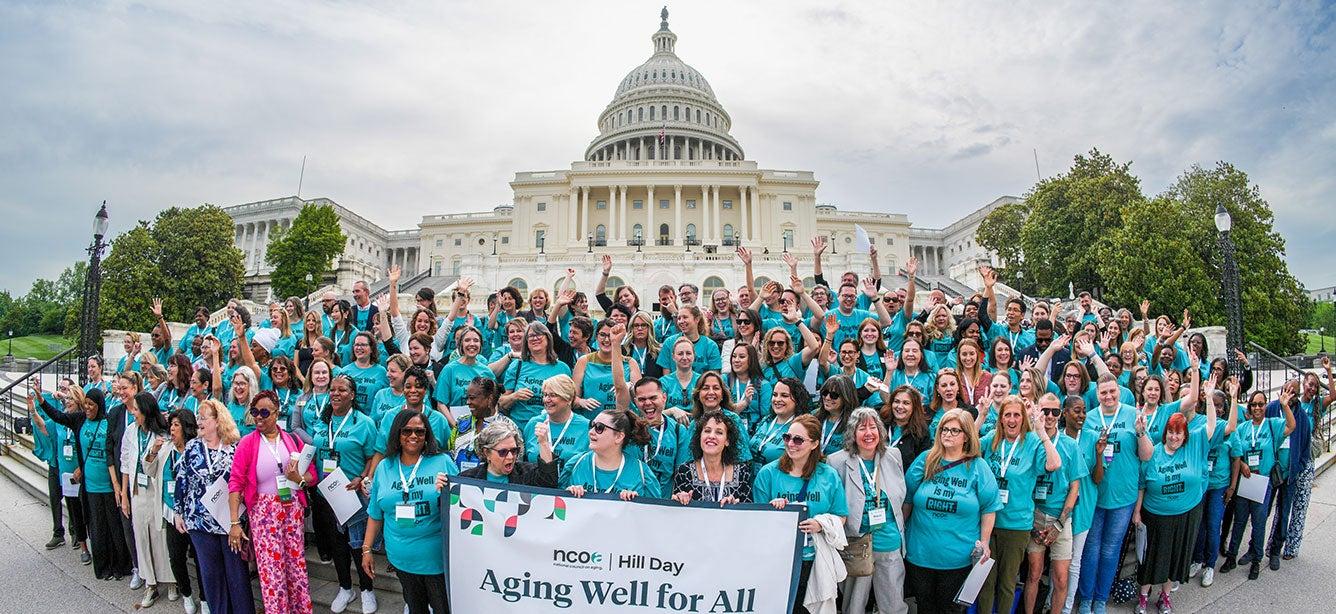Budget Blueprint Proposes Historic Investments in Medicare, Medicaid
4 min read

Following a successful Senate vote on August 11, the House passed an historic $3.5 trillion budget plan on August 24 that offers a once-in-a-generation opportunity to significantly improve Medicare and Medicaid for older Americans.
At the same time, the House agreed to a September vote on the bipartisan Infrastructure Investment and Jobs Act, which the Senate also passed earlier. It includes provisions for older adults, as well.
What’s in the budget plan?
The budget plan features many of President Biden’s proposals from his American Jobs Plan and American Families Plan, as well as priority improvements that NCOA has been advocating for:
- Improved Medicare coverage that includes lower costs for prescription drugs, as well as new dental, hearing, and vision benefits
- Greater access to home and community-based services for seniors and individuals with disabilities
- Expanded paid family and medical leave, including care for spouses and parents
- Reforms to workforce development and job training programs that serve older adults
The proposal is only a blueprint now, but House leaders are aiming to pass a final bill by the end of September. By using a budget process known as reconciliation, the plan can then be passed by a simple majority vote in the Senate.
What’s in the infrastructure bill?
The bipartisan infrastructure bill also features provisions that impact older adults, including:
Transportation
- $2 billion for enhanced mobility program for seniors and persons with disabilities
- $250 million per year for formula grants for mobility of seniors and persons with disabilities
- Expanded support for the Complete Streets/Safe Streets program
Broadband
- Support for broadband deployment in underserved areas, including rural and tribal communities
- Transition of the Emergency Broadband Benefit to a permanent Affordable Connectivity Program (with a subsidy decrease to $30/month and income eligibility increase to 200% of poverty)
- Investment in the bipartisan Digital Equity Act, endorsed by NCOA, which supports state and local efforts to promote broadband access
Energy Assistance
- $500 million for the Low-Income Home Energy Assistance Program targeted to hot-weather states
- $3.5 billion for the Weatherization Assistance Program, which provides repairs and upgrades to promote energy efficiency for low-income households
What’s next for this legislation?
House leaders are aiming to pass both the budget reconciliation and infrastructure bills by the end of September. The budget reconciliation bill would then go to the Senate. The Senate already approved the infrastructure bill.
This makes September a critical time for advocates to tell their members of Congress to keep these important provisions that will improve the lives of older adults. There is pressure to ensure that any new spending is offset by savings or revenues. That means these improvements could be scaled back or eliminated if Congress doesn’t hear from their constituents that they are important.
3 ways you can help get these proposals enacted
You can help keep these provisions by telling your members of Congress why they matter to you and the older adults you serve. Here’s how:
- Attend our free 30-minute webinar on September 13 @ 2:30 p.m. to learn more
- Send an email or Tweet to your legislators using our Action Center
- Get tips on contacting your members of Congress
Stay tuned to NCOA for the latest information as these bills make their way through Congress.




